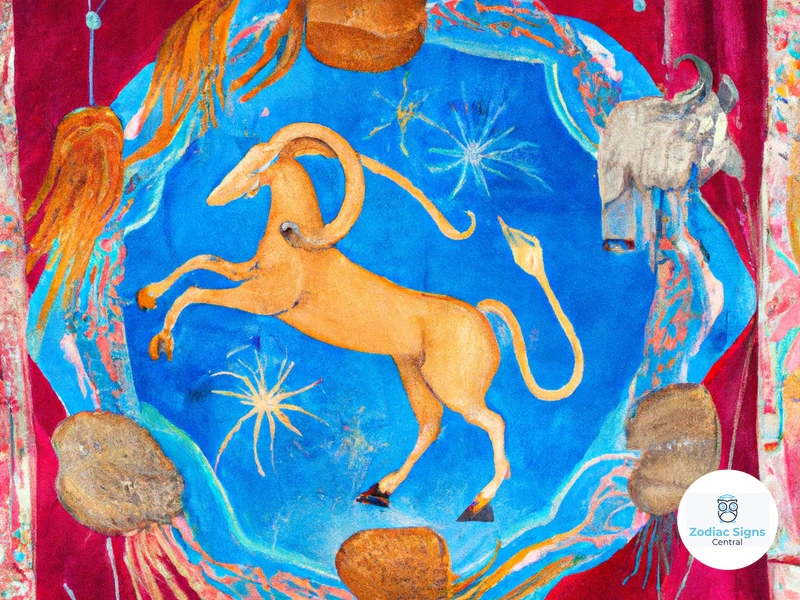Welcome to a fascinating exploration of the mythology and symbolism behind each zodiac sign. In this article, we will delve into the origins of the symbols associated with each sign and uncover the rich mythological connections that have shaped our understanding of the zodiac. From the fiery passion of Aries to the regal presence of Leo, each sign carries its own unique story and symbolism. Join us on this journey through the celestial world as we unravel the mysteries and uncover the hidden meanings behind the zodiac signs.
Aries – The Ram
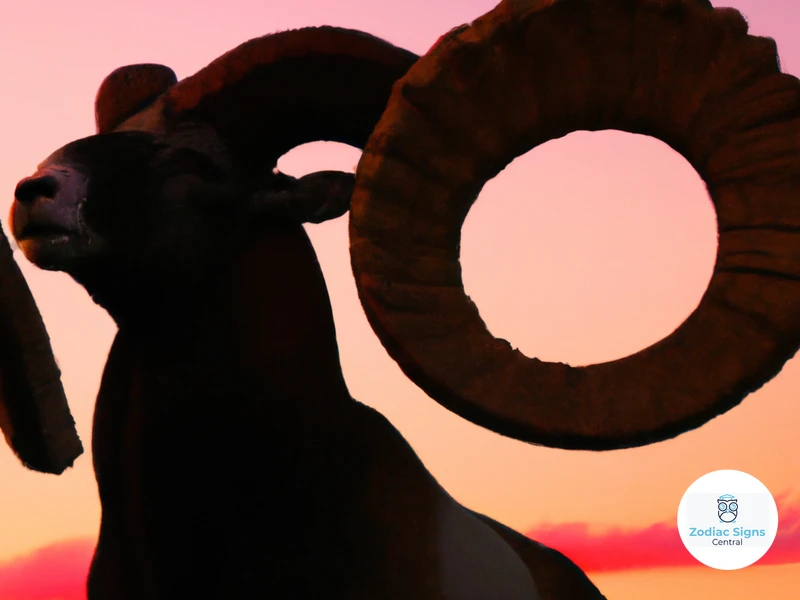
Aries, the first sign of the zodiac, is symbolized by the Ram. The origin of this symbol can be traced back to ancient Greek mythology. In Greek mythology, the Ram is associated with the story of the Golden Fleece. The Golden Fleece was a mythical object that possessed incredible powers and was guarded by a fiercely protective Ram. The Ram is said to have carried the two siblings, Phrixus and Helle, across the sea to safety. However, Helle fell off the Ram’s back and drowned, giving the body of water she fell into the name “Hellespont.” Phrixus, on the other hand, safely reached Colchis and sacrificed the Ram to the gods as a token of gratitude. In recognition of the Ram’s bravery and sacrifice, Zeus placed the Ram among the stars, immortalizing it as the constellation Aries. Aries individuals are often characterized by their boldness, ambition, and courage. They possess a strong drive to conquer challenges and are driven by their desire to be at the forefront. It’s important to note that Aries individuals are also associated with the element of fire and the ruling planet Mars, which further adds to their fiery and determined nature. Aries – the Ram is a powerful and influential sign in the zodiac that embodies strength and ambition.
role of mythology in astrology
1. Origin of the Symbol
The symbol of Aries, the Ram, has its origin in ancient mythology. In Greek mythology, the Ram is closely associated with the story of the Golden Fleece. The Golden Fleece was a prized and powerful object that was guarded by a valiant Ram. The Ram, often depicted with majestic horns, symbolized bravery, strength, and protection. As the guardian of the Golden Fleece, the Ram played a crucial role in the mythological narrative. Its significance as a symbol of courage and sacrifice led to its inclusion in the zodiac as the representation of the Aries sign. The Ram’s journey across the sea, carrying Phrixus to safety and ultimately being sacrificed as an offering to the gods, highlights its importance and its eternal place in the stars as the constellation Aries. This depiction of the Ram in Greek mythology and its subsequent inclusion in astrology serves as a testament to the enduring symbolism and influence of ancient myths on our understanding of the zodiac signs.
astrological remedies for common ailments
2. Mythological Connections
The mythological connections surrounding Aries, the Ram, are deeply rooted in ancient legends and folklore. One of the most prominent mythological associations of Aries can be found in the tale of the Greek hero Jason and the Argonauts. According to the myth, Jason was tasked with retrieving the Golden Fleece, which was guarded by a fearsome dragon. It was the Ram, a representation of Aries, who came to Jason’s aid by providing him with his golden fleece. This allowed Jason to overcome the dragon and successfully claim the treasured fleece. This mythological connection highlights the bravery, protection, and guidance associated with Aries individuals, symbolizing their ability to overcome challenges and achieve greatness.
Another mythological connection pertaining to Aries can be found in the Greek story of the creation of the zodiac itself. The tale revolves around the goddess Aphrodite and her son Eros, who transformed into two rams with golden fleece. These rams are said to have carried Phrixus and Helle to safety, as mentioned earlier. The significance of this connection lies in the representation of Aries as a symbol of strength, protection, and endurance.
In Norse mythology, Aries is also linked to the god Thor, known for his bravery, fierce battles, and protective nature. Thor, often depicted wielding a mighty hammer, embodies the warrior spirit of Aries and represents the strength and courage associated with this sign.
These mythological connections emphasize the characteristics and traits often associated with Aries individuals. They are brave, protective, and driven, willing to face challenges head-on and conquer them. Aries individuals draw inspiration from these mythical tales, allowing them to embrace their inner strength and determination.
For more insights into how astrology influences personalities, you can explore the role of ruling planets and elements in influencing personalities.
Taurus – The Bull
Taurus, symbolized by the Bull, has a rich mythological background that intertwines with several ancient civilizations. One prominent myth comes from Greek mythology, where the Bull is associated with the story of the Cretan Bull. According to the myth, Poseidon, the god of the sea, gifted King Minos of Crete with a magnificent white bull as a sign of divine favor. However, King Minos was expected to sacrifice the bull to honor the gods. Instead, he chose to keep the bull and sacrificed a different one in its place. Angered by this defiance, Poseidon sought revenge by causing the bull to become wild and ferocious. This rampaging Bull, known as the Cretan Bull, caused havoc and destruction until Hercules, the great hero of Greek mythology, captured and tamed it. Another myth involving the Bull is the story of Europa, a Phoenician princess whom Zeus, the king of gods, transformed into a beautiful white bull to carry her away to the island of Crete. Taurus individuals are often associated with stability, determination, and reliability, mirroring the steadfast nature of the Bull. They are known for their practical approach to life and strong sense of loyalty. With the element of Earth and the ruling planet Venus, Taurus individuals often appreciate art, beauty, and the finer things in life. Taurus – the Bull, embodies strength, perseverance, and a deep connection to nature and the material world. Taurus – the Bull is a steadfast and grounded sign that values stability and loyalty.
1. Origin of the Symbol
The origin of the Aries symbol, the Ram, is deeply rooted in ancient mythology. This symbol can be traced back to the Greek myth of the Golden Fleece. According to the myth, King Athamus of Boeotia married Nephele and had two children, Phrixus and Helle. However, Athamus later remarried, which led to the mistreatment of Nephele and her children. In their desperation, Nephele sent a golden ram with a golden fleece to rescue her children from their cruel fate. This magnificent Ram had the ability to fly and carried Phrixus and Helle on its back, soaring across the sky. Unfortunately, during the flight, Helle lost her grip and fell into the sea, creating the Hellespont or the Dardanelles. Phrixus, on the other hand, safely reached Colchis after the Ram landed there. Grateful for their deliverance, Phrixus sacrificed the Ram to Zeus and presented its golden fleece as a sign of appreciation. The Golden Fleece became a coveted item, and it was this golden Ram that was immortalized as the constellation Aries in the night sky. The symbol of the Ram in Aries represents bravery, protection, and heroism, symbolizing the courageous nature of individuals born under this sign. The origin of the Aries symbol is a testament to the power of mythology in shaping our understanding of astrology.
role of mythology in astrology
2. Mythological Connections
When exploring the mythological connections of Aries, we find that there are various fascinating tales and figures associated with this zodiac sign. One notable mythological connection is with the Greek god Ares, who is often depicted as a fierce warrior and is the counterpart to the Roman god Mars. Ares was known for his strength and battle prowess, embodying the qualities of bravery and aggression that are often attributed to those born under the sign of Aries. Another mythological figure linked to Aries is Jason, the hero who sought the Golden Fleece. As mentioned earlier, the Golden Fleece was guarded by the Ram, and it was Jason’s quest to retrieve it that brought him face to face with the ram and embarked him on an extraordinary adventure. This mythological connection highlights the courageous and determined nature of Aries individuals, as they are often driven by a sense of purpose and the desire to achieve greatness. Additionally, in Egyptian mythology, Aries is connected to the god Amon-Ra, the god of the sun and ruler of creation. Aries individuals are said to possess a fiery and radiant energy reminiscent of this powerful deity. These mythological connections add depth and meaning to the symbolism associated with Aries, reinforcing its association with strength, leadership, and the pursuit of extraordinary feats.
Gemini – The Twins
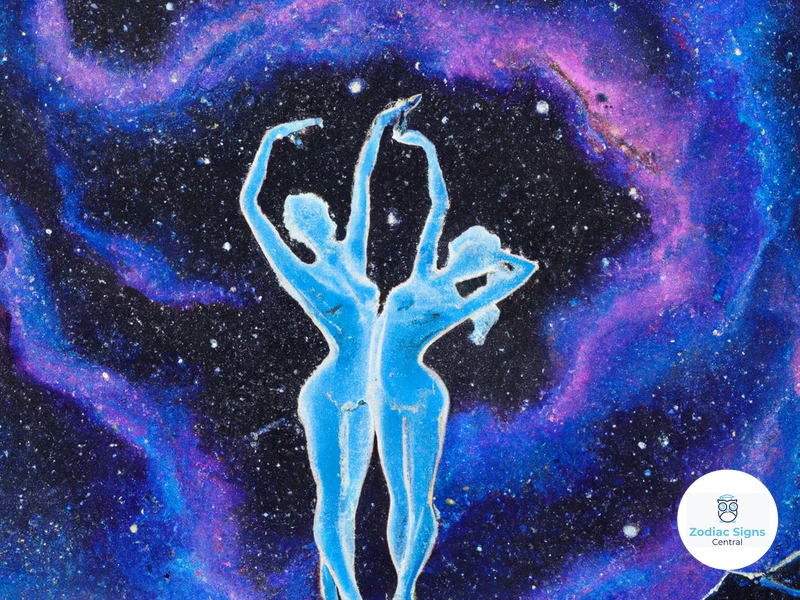
Gemini, the third sign of the zodiac, is symbolized by the Twins. The symbol of the Twins represents duality, balance, and harmony. The origin of this symbol can be traced back to Greek mythology and the story of Castor and Pollux. Castor and Pollux were twin brothers, born to different fathers. Castor was the mortal son of King Tyndareus, while Pollux was the divine son of Zeus. The twins shared a deep bond and were inseparable. In their adventures, they embarked on a quest known as the “Argonauts,” accompanying Jason in search of the Golden Fleece. When Castor was killed in a battle, Pollux was devastated and asked Zeus to grant him immortality so that he could be united with his brother once again. Zeus, moved by Pollux’s devotion, placed both Castor and Pollux among the stars as the constellation Gemini. Gemini individuals are known for their quick wit, adaptability, and versatility. They possess a dual nature, often displaying contrasting characteristics such as being sociable yet introspective, intellectual yet restless. The Twins symbolize the two sides of Gemini’s personality, constantly seeking balance and embracing different perspectives. represents the duality within us all, reminding us of the beauty of embracing both our light and shadow selves in harmony.
1. Origin of the Symbol
The symbol of Aries, the Ram, has its roots in ancient mythology. According to Greek mythology, the Ram played a pivotal role in the story of the Golden Fleece. The myth goes that a magical Ram with golden wool carried the siblings Phrixus and Helle to safety across treacherous waters. Though Helle tragically fell from the Ram’s back and perished, Phrixus managed to reach his destination, where he sacrificed the Ram in gratitude to the gods. This act immortalized the Ram, placing it among the stars as the constellation Aries. The symbol of the Ram represents bravery, sacrifice, and protection. It signifies the indomitable spirit of Aries individuals who possess a fearlessness akin to that of the Ram. Just as the Ram fearlessly charges ahead, those born under the sign of Aries are known for their courageous nature and willingness to take on challenges headfirst. The symbol of the Ram captures these qualities and serves as a reminder of the origin and essence of Aries as the Ram in the zodiac.
2. Mythological Connections
Mythological connections surrounding Aries, the Ram, extend beyond the story of the Golden Fleece. In ancient Greek mythology, Aries is often associated with the powerful god of war, Ares. Ares was known for his aggressive and fearless nature, embodying the qualities of strength and valor that are characteristic of Aries individuals. Ares was also revered as the father of the renowned Amazonian warrior queen, Hippolyta. According to myth, Hippolyta possessed incredible skill in combat, mirroring the fierce determination and prowess often seen in those born under the sign of Aries. Additionally, Aries finds its connection in the myth of Jason and the Argonauts. In their heroic quest for the Golden Fleece, Aries played a crucial role in providing assistance and protection to the Argonauts. These mythological connections not only emphasize the courageous and daring nature of Aries but also highlight the sign’s association with leadership and the pursuit of adventure. Aries individuals are often driven by their need for excitement and conquest, embodying the spirit of the Ram that symbolizes their sign.
role of mythology in astrology
Cancer – The Crab
Cancer, the fourth sign of the zodiac, is symbolized by the Crab. The origin of this symbol can be traced back to Greek mythology. According to the myth, the crab was sent by the goddess Hera to aid the Hydra in its battle against Hercules. However, as the battle progressed, Hercules crushed the crab under his foot. As a reward for its loyalty and bravery, Hera placed the crab among the stars as the constellation Cancer. The symbolism of the Crab is significant for those born under the sign of Cancer. Just like the crab, Cancer individuals are known for their protective and nurturing nature. They have a strong sense of loyalty and are fiercely protective of their loved ones. But like the crab’s hard shell, Cancer individuals can sometimes come across as guarded and cautious, preferring to retreat into their shell when feeling threatened or overwhelmed. This symbol also reflects Cancer’s strong association with their home and family. Cancer individuals find comfort and security in their domestic sphere and have a deep emotional connection to their loved ones. They are known for their empathy, intuition, and ability to create a warm and nurturing environment. Cancer – the Crab is a symbol of protection, loyalty, and emotional depth, making it an integral part of the zodiac.
astrological remedies for common ailments
1. Origin of the Symbol
The symbol of Aries, the Ram, has a fascinating origin steeped in mythology. In ancient Greece, the story of the Golden Fleece is renowned, and it serves as a significant source of inspiration for the symbol of Aries. According to Greek mythology, the Ram played a crucial role in the quest for the Golden Fleece. The Golden Fleece was a sought-after relic, possessing incredible mystical powers. It was guarded by a fearsome Ram with golden wool. This Ram was said to have rescued the siblings Phrixus and Helle from a treacherous fate by carrying them on its back across the sea. However, tragically, Helle fell into the water and perished, giving her name to the Hellespont strait. Phrixus, on the other hand, reached safety in Colchis and sacrificed the Ram to the gods in gratitude. In recognition of the Ram’s heroic act, Zeus placed it among the stars, immortalizing it as the constellation Aries. This captivating mythological tale serves as the origin of the symbol associated with Aries, symbolizing bravery, protection, and sacrifice.
2. Mythological Connections
Mythological connections play a significant role in understanding the symbolism behind each zodiac sign, including Aries. In addition to the Greek mythology associated with the Ram, there are other mythologies and stories that relate to Aries. In Egyptian mythology, the Ram is connected to the god Amun-Ra, who was considered the king of all gods. Amun-Ra was depicted with a ram’s head, symbolizing fertility, power, and leadership. This association reflects the dominant and charismatic traits often exhibited by those born under the sign of Aries. In Norse mythology, the Ram is linked to Heidrun, a mythical goat that produced mead for the gods. This mythology underscores Aries’ association with productivity and abundance, as well as its connection to celebrations and festivities. Additionally, in Hindu astrology, the Ram represents the sign of Mesha, associated with Lord Kartikeya, the god of war and victory. The deep-rooted mythological connections provide further insight into the personality traits and characteristics associated with Aries individuals. They highlight the bravery, leadership qualities, and competitive nature often attributed to those born under this sign. The mythological connections associated with Aries enrich our understanding of this zodiac sign and its significance in astrology.
Leo – The Lion
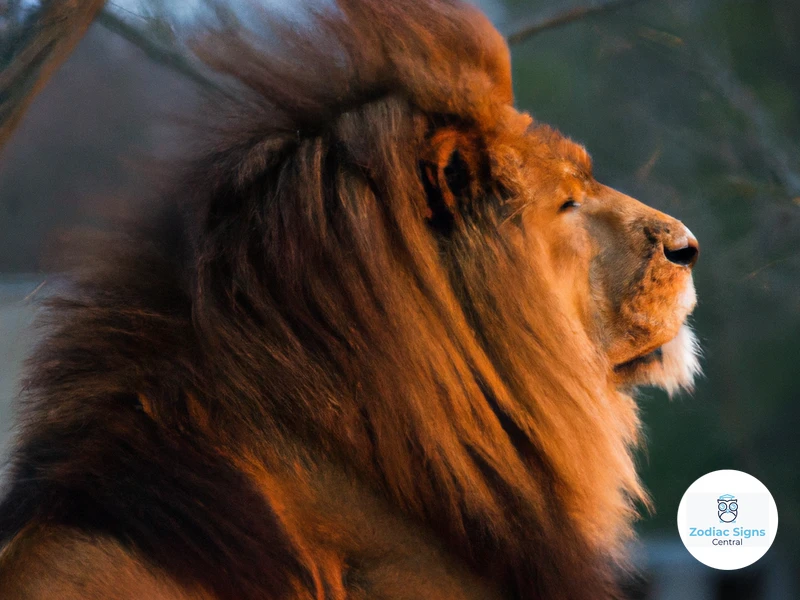
Leo, the fifth sign of the zodiac, is symbolized by the majestic Lion. The symbolism of the Lion can be traced back to various mythologies and cultures, where it is often associated with strength, power, and royalty. In ancient Egyptian mythology, the Lion was seen as a representation of the sun god, Ra. Ra was believed to be the ruler of all gods and the bringer of light and warmth. The Lion, as the king of the animal kingdom, embodied these qualities and was revered for its regal and authoritative demeanor. Another significant mythological connection to Leo can be found in Greek mythology, where the Lion is associated with the Nemean Lion. The Nemean Lion was an enormous and ferocious creature that terrorized the region of Nemea, killing both humans and animals. This powerful beast had impenetrable skin that no weapon could pierce. Hercules, as part of his twelve labors, was tasked with slaying the Nemean Lion. Using his exceptional strength, Hercules successfully defeated the lion and wore its invincible skin as a protective cloak. Impressed by Hercules’ courage and prowess, Zeus honored the Nemean Lion by placing it in the sky as the constellation Leo. Those born under the sign of Leo are often characterized by their confidence, charisma, and natural leadership abilities. They possess a fiery spirit and radiate a captivating energy that draws others towards them. Just like the Lion, Leos are often the center of attention and command respect and admiration from those around them. With the ruling planet of the Sun and the element of fire, Leos have an innate passion and zeal that shines brightly in everything they do. Leo – the Lion signifies nobility, strength, and a regal presence that leaves a lasting impact on those they encounter.
1. Origin of the Symbol
The origin of the symbol for Aries, the Ram, can be traced back to various ancient cultures and mythologies. In addition to the Greek mythological connection mentioned earlier, there are other fascinating stories and symbolisms associated with this zodiac sign. In Egyptian mythology, the Ram was viewed as a symbol of fertility and new beginnings. The ancient Egyptians believed that the god Amun-Ra, who was represented with the head of a Ram, was responsible for creating and sustaining life. The Ram symbolized power, authority, and the ability to assert oneself. In Mesopotamian cultures, the Ram was associated with the god Marduk, one of the most important deities. The Ram symbolized leadership and strength, as well as protection from evil forces. The horns of the Ram were believed to have protective and warding-off qualities. From these various mythological connections, it becomes clear that the symbol of the Ram in Aries represents characteristics such as bravery, assertiveness, fertility, and protection. It is the embodiment of the qualities attributed to the people born under this sign, making them natural leaders and go-getters.
2. Mythological Connections
Mythological connections play a significant role in understanding and interpreting the meaning behind each zodiac sign. When it comes to Aries, there are several mythological connections that shed light on the characteristics and traits associated with this sign. One such connection is with the Greek god Ares, who is often associated with war and courage. Ares was known for his fierce and aggressive nature, embodying the fiery spirit of Aries. Another mythological connection ties Aries to the ancient Sumerian god Enlil, who was regarded as the god of wind and storms. Enlil’s association with power, strength, and determination aligns closely with the qualities of Aries individuals. Additionally, in Roman mythology, Aries is linked to Mars, the god of war and fertility. Mars symbolizes passion, assertiveness, and the urge to take action, reflecting the dominant traits of Aries. These mythological connections emphasize the importance of understanding the symbolism and influences that shape each zodiac sign. They provide a deeper insight into the nature of Aries individuals and their inherent qualities. Aries – the Ram holds a powerful place in mythological connections, showcasing the significance of both ancient and modern interpretations of astrology.
Conclusion
To conclude our exploration of the mythology behind each zodiac sign, we have uncovered a fascinating world of symbolism and ancient stories. From Aries, the fearless Ram, to Leo, the regal Lion, each zodiac sign carries its own unique mythological connections and origins. These myths and symbols have played a significant role in shaping our understanding of astrology and the personalities associated with each sign. Exploring the mythology behind the zodiac signs adds depth and intrigue to our understanding of ourselves and the world around us. Whether you believe in astrology or not, there is no denying the allure of these ancient tales that have stood the test of time. The mythology behind each zodiac sign serves as a reminder of the rich tapestry of human culture and the enduring power of storytelling. As we gaze upon the stars and map out the constellations, let us marvel at the stories that have shaped our beliefs and provided us with a deeper connection to the cosmos. Each zodiac sign is a window into a captivating tale that continues to captivate and inspire.
Frequently Asked Questions
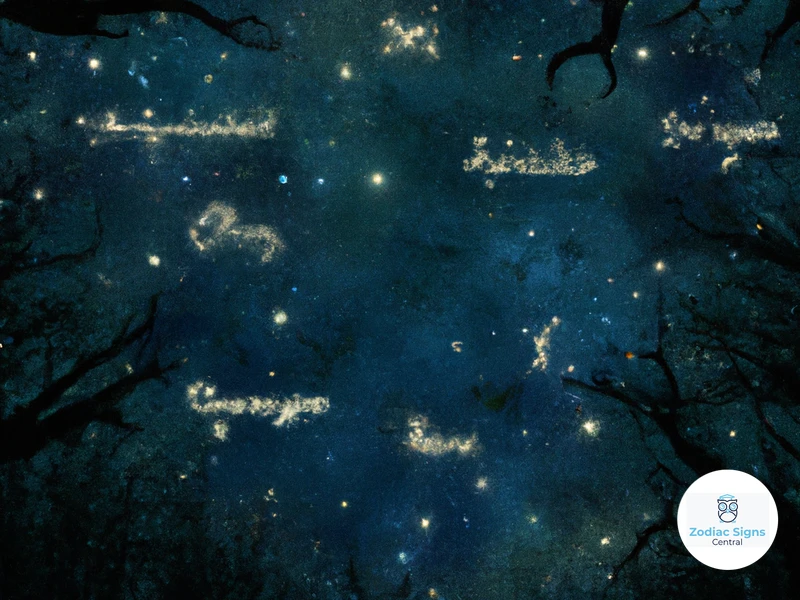
1. How did the Ram become the symbol of Aries?
The Ram became the symbol of Aries in Greek mythology, specifically through the story of the Golden Fleece. The Ram’s association with bravery, sacrifice, and protection led Zeus to immortalize it as the constellation Aries.
2. What are some common traits of Aries individuals?
Common traits of Aries individuals include boldness, ambition, courage, and a strong drive to overcome challenges. They are known for their fiery and determined nature.
3. Are Aries individuals natural leaders?
Yes, Aries individuals are often considered natural leaders due to their assertiveness, confidence, and ability to take charge. They are not afraid to take risks and pave their own path.
4. How does the element of fire influence Aries individuals?
The element of fire represents passion, energy, and creativity. It influences Aries individuals by fueling their drive, enthusiasm, and spontaneity. They are known for their fiery personalities.
5. What is the ruling planet of Aries?
The ruling planet of Aries is Mars. Mars is associated with action, determination, and aggression, which aligns with the bold and courageous nature of Aries individuals.
6. Are Aries individuals competitive?
Yes, Aries individuals are often highly competitive. They have a strong desire to win and excel in whatever they do. They thrive in competitive environments and enjoy pushing their limits.
7. What kind of careers suit Aries individuals?
Aries individuals are well-suited for careers that require leadership, independence, and a fast-paced environment. They excel in fields such as entrepreneurship, sales, politics, and sports.
8. Can Aries individuals be impulsive?
Yes, Aries individuals can be impulsive at times. Their spontaneous nature combined with their desire for immediate results can lead them to make impulsive decisions without considering all the consequences.
9. Are Aries individuals natural risk-takers?
Yes, Aries individuals are known for their willingness to take risks. They embrace challenges and have a high tolerance for uncertainty. They thrive in situations that require courage and fearlessness.
10. Do Aries individuals have a competitive streak in relationships?
Aries individuals can have a competitive nature in relationships, especially when it comes to achieving goals or being the dominant partner. However, it’s important for them to find a balance between healthy competition and fostering a supportive and equal partnership.
References
Frequently Asked Questions

1. Are the zodiac signs based on real mythological figures?
Yes, each zodiac sign is associated with mythological figures from various cultures and time periods. These figures often represent different qualities and characteristics attributed to each sign.
2. What is the origin of the zodiac symbol for Aries?
The zodiac symbol for Aries, the ram, dates back to ancient Greek mythology. It is believed to represent the golden ram that saved Phrixus and Helle from a treacherous sea voyage.
3. Who are some famous mythological twins associated with Gemini?
In Greek mythology, Castor and Pollux are the most well-known mythological twins associated with Gemini. They were known as the Dioscuri, and their story is filled with heroism and brotherly love.
4. Do all zodiac signs have connections to ancient mythology?
Yes, all zodiac signs have connections to ancient mythology. The myths associated with each sign often provide insight into the characteristics and traits attributed to individuals born under that sign.
5. What mythological creature is associated with Cancer?
Cancer is associated with the crab in mythology. In Greek mythology, it is believed to represent the crab that Hera sent to distract Hercules during his battle with the Hydra.
6. Why is Leo associated with the lion?
Leo is associated with the lion due to its connection with the Nemean Lion in Greek mythology. The Nemean Lion was a fierce and powerful creature that Hercules had to defeat as one of his twelve labors.
7. Are there any unique mythological connections to Taurus?
Yes, Taurus is unique in its association with different mythological figures across various cultures. In Greek mythology, Taurus is often linked to the story of Zeus and Europa, where Zeus transformed into a bull to carry Europa away.
8. How do the mythological connections affect each zodiac sign?
The mythological connections add depth and symbolism to each zodiac sign. They provide a rich source of storytelling and help shape the understanding of the characteristics and traits associated with each sign.
9. Are there any alternative mythological interpretations for each zodiac sign?
Yes, there are alternative mythological interpretations for each zodiac sign. Different cultures have their own myths and legends, which may provide alternative explanations or associations for the zodiac signs.
10. Can understanding the mythological connections enhance our understanding of the zodiac signs?
Yes, understanding the mythological connections can enhance our understanding of the zodiac signs. It provides a broader context and narrative for the characteristics and traits associated with each sign, allowing for a deeper exploration of their symbolism.

